Search Images
Browse Content (p. 1312)
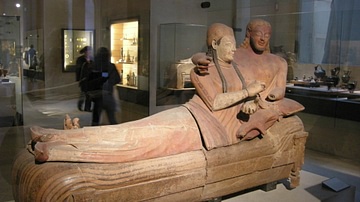
Image
Sarcophagus of the Married Couple, Cerveteri
The painted terracotta Sarcophagus of the Married Couple from the Etruscan site of Cerveteri. c. 530-520 BCE. Length: 1,9 m. (Louvre Museum, Paris)
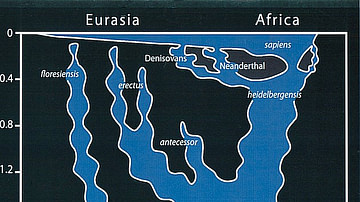
Image
Stringer Graph-model of Homo Evolution
Chris Stringer's hypothesis, depicted in a graph-model, of the evolution of several species of genus Homo over the last 2 million years (vertical axis), as published in Stringer, C. (2012). "What makes a modern human". Nature 485 (7396...
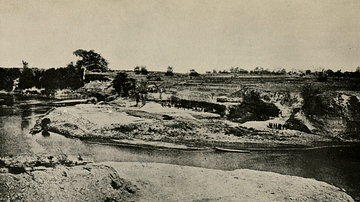
Image
Site of Trinil, Java, Indonesia
Palaeoanthropological site of Trinil, Java, Indonesia, where Eugène Dubois first discovered Pithecanthropus (now Homo) erectus in the 1890s.
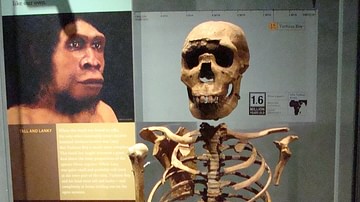
Image
Turkana Boy
Turkana Boy, also called Nariokotome Boy, is a rare nearly complete skeleton of a youth who lived near Lake Turkana, Kenya, around 1,6-1,5 million years ago. He belongs to the species Homo erectus (or Homo ergaster, depending on which theories...
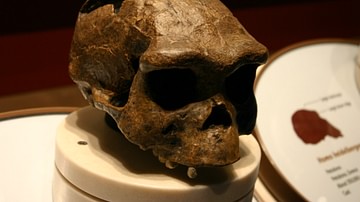
Image
Homo Erectus Skull Cast from Java, Indonesia
Cast of Homo erectus skull Sangiran 17 found at Sangiran, Java, Indonesia. It is around 1 million years old and is on display at the David H. Koch Hall of Human Origins at the Smithsonian Natural History Museum.
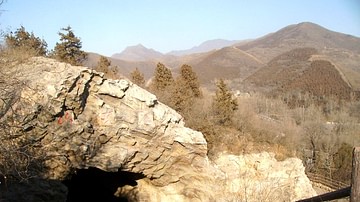
Image
Zhoukoudian Upper Cave, China
Upper Cave is one of the caves at the cave system at Zhoukoudian, China. The site as a whole has yielded an impressive range of archaeological discoveries, among which is one of the first specimens of Homo erectus.

Image
Reconstruction of Homo Erectus Adult Female Head
A reconstruction of the face of an adult female Homo erectus, as seen on display in the Hall of Human Origins in the Smithsonian Museum of Natural History in Washington, D.C. It was based on fossils KNM-ER 3733 and 992. Reconstruction by...
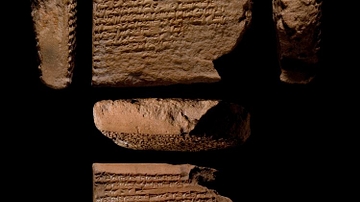
Image
The Wrath of Erra
This 7th-century BCE clay tablet gives the Babylonian account known as the Legend of Erra, the plague god, who slew many Babylonians after the withdrawal of the god Marduk from the city of Babylon.
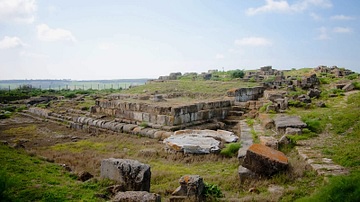
Image
Ara Della Regina, Tarquinia
The remaining base of the 4th century BCE Etruscan temple known as the Ara Della Regina, dedicated to an unknown goddess at Tarquinia. It was the largest known Etruscan temple with its base of limestone blocks measuring 77 x 34 m.
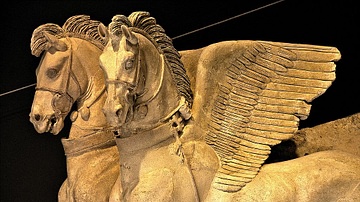
Image
Etruscan Winged-horses, Tarquinia
A pair of terracotta winged-horses from the Temple of the Ara della Regina, Tarquinia. Etruscan, c. 350 BCE. (National Archaeological Museum, Tarquinia, Italy)